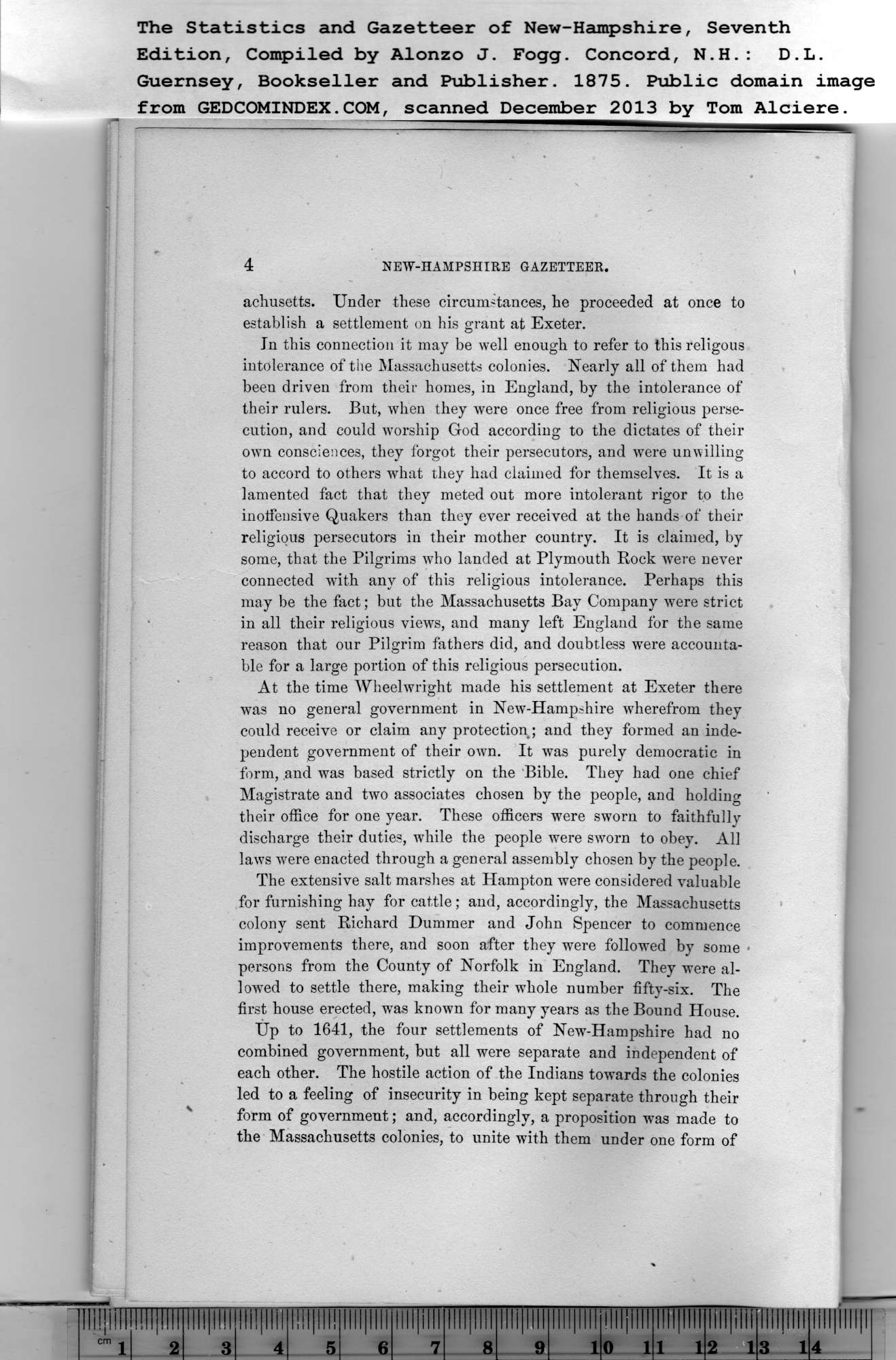|
4 NEW-HAMPSHIRE GAZETTEER.
achusetts. Under these circumstances, he proceeded at once to
establish a settlement on his grant at Exeter.
In this connection it may be well enough to refer to this religous
intolerance of the Massachusetts colonies. Nearly all of them had
been driven from their homes, in England, by the intolerance of
their rulers. But, when they were once free from religious perse-
cution, and could worship God according to the dictates of their
own consciences, they forgot their persecutors, and were unwilling
to accord to others what they had claimed for themselves. It is a
lamented fact that they meted out more intolerant rigor to the
inoffensive Quakers than they ever received at the hands of their
religious persecutors in their mother country. It is claimed, by
some, that the Pilgrims who landed at Plymouth Rock were never
connected with any of this religious intolerance. Perhaps this
may be the fact; but the Massachusetts Bay Company were strict
in all their religious views, and many left England for the same
reason that our Pilgrim fathers did, and doubtless were accounta-
ble for a large portion of this religious persecution.
At the time Wheelwright made his settlement at Exeter there
was no general government in New-Hampshire wherefrom they
could receive or claim any protection; and they formed an inde-
pendent government of their own. It was purely democratic in
form, and was based strictly on the Bible. They had one chief
Magistrate and two associates chosen by the people, and holding
their office for one year. These officers were sworn to faithfully
discharge their duties, while the people were sworn to obey. All
laws were enacted through a general assembly chosen by the people.
The extensive salt marshes at Hampton were considered valuable
for furnishing hay for cattle ; and, accordingly, the Massachusetts
colony sent Richard Dummer and John Spencer to commence
improvements there, and soon after they were followed by some
persons from the County of Norfolk in England. They were al-
lowed to settle there, making their whole number fifty-six. The
first house erected, was known for many years as the Bound House.
Up to 1641, the four settlements of New-Hampshire had no
combined government, but all were separate and independent of
each other. The hostile action of the Indians towards the colonies
led to a feeling of insecurity in being kept separate through their
form of government; and, accordingly, a proposition was made to
the Massachusetts colonies, to unite with them under one form of
PREVIOUS PAGE ... NEXT PAGE
This page was written in HTML using a program written in Python 3.2
|
